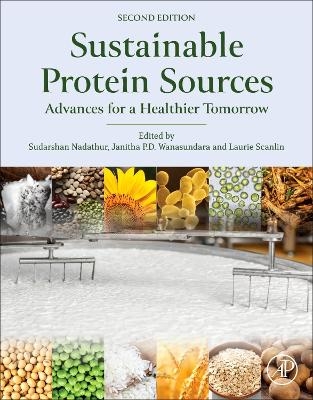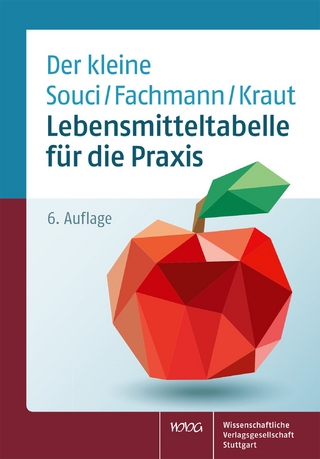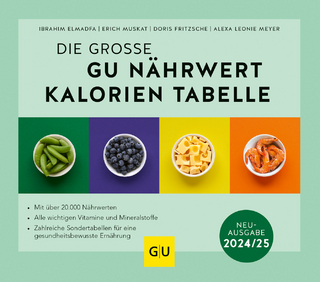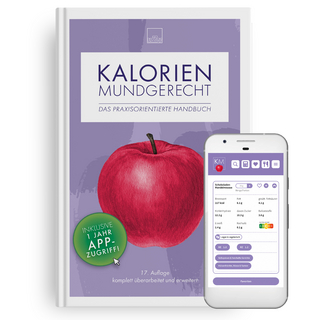
Sustainable Protein Sources
Academic Press Inc (Verlag)
978-0-323-91652-3 (ISBN)
Dr. Sudarshan Nadathur is Chief Flavorist - Dairy & Protein, with ADM Nutrition. His career of 25 years has been in the Flavor industry, where he has held both regional and international roles supporting research, flavor creation, and developing new business. With a keen interest in Health and Sustainability, Dr. Nadathur has authored articles on dairy and related topics, the importance of changing our diets and improving the tastes of plant-based foods. He was actively involved with the Sustainability area of the Institute of Food Technologists (IFT) over the last several years including chair of the Sustainability program for the Annual Meeting Scientific Program Advisory Panel. Dr. Nadathur has degrees in Chemistry / Biochemistry from India, Masters in Food Science from the University of Delaware, a Doctorate in Food Science & Technology from Oregon State University and is a Certified Food Scientist. Dr. Janitha Wanasundara is a Senior Research Scientist at the Saskatoon Research and Development Centre of Agriculture and Agri-Food Canada (AAFC) while affiliating as an Adjunct Professor at the University of Saskatchewan, Canada. She holds a doctorate in Food Science and has over 25 years of experience in the food chemistry, protein chemistry and food technology areas as a researcher and a university level educator. Dr. Wanasundara’s research efforts are to understand seed proteins for their optimum use in supporting environmentally sustainable healthy foods and renewable bioproducts. Dr. Wanasundara has contributed to more than 85 peer reviewed publications and book chapters in the field of food science and holds a patent on protein processing of Brassicaceae oilseeds. She has been involved in organizing various scientific conferences and made presentations and webinars on science and technology relevant for the developing plant protein industry. Dr. Wanasundara is a Certified Food Scientist. Dr. Laurie Scanlin is Director of Research and Development at Ardent Mills. Her career spans over 25 years in food and beverage product development, taking concepts from research through full-scale commercialization for ingredient, retail, and food service companies. She holds a doctorate in Food Science and Human Nutrition and is Affiliate Professor at Colorado State University in Fort Collins, CO. Dr. Scanlin is committed to sustainable, plant-based and alternative protein sources and has been a selected international presenter on this global topic. She is also principal inventor of U.S. Patent "Quinoa Protein Concentrate, Production, and Functionality" and past chair of the Rocky Mountain Institute of Food Technologists.
1. Proteins in the Diet: Challenges in Feeding the Global Population 2. Soy Protein: Impacts, Production, and Applications 3. Rice Protein and Rice Protein Products 4. Proteins From Wheat: Sustainable Production and New Developments in Nutrition-Based and Functional Applications 5. Proteins From Sorghum and Millets 6. Protein From Oat: Structure, Processes, Functionality, and Nutrition 7. Hemp Seed (Cannabis sativa L.) Proteins: Composition, Structure, Enzymatic Modification, and Functional or Bioactive Properties 8. Protein From Flaxseed (Linum usitatissimum L.) 9. Pea: A Sustainable Vegetable Protein Crop 10. Lupin: An Important Protein and Nutrient Source 11. Lentil: Revival of Poor Man’s Meat 12. Underutilized Protein Resources From African Legumes 13. Peanut Products as a Protein Source: Production, Nutrition, and Environmental Impact 14. Quinoa as a Sustainable Protein Source: Production, Nutrition, and Processing 15. Amaranth Part 1—Sustainable Crop for the 21st Century: Food Properties and Nutraceuticals for Improving Human Health 16. Amaranth Part 2 Sustainability, Processing, and Applications of Amaranth 17. Chia—The New Golden Seed for the 21st Century: Nutraceutical Properties and Technological Uses 18. Potato protein 19. Faba Bean 20. Chickpea 21. Proteins From Canola/Rapeseed: Current Status 22. Coconut 23. Mycoprotein: A Healthy New Protein With a Low Environmental Impact 24. Heterotrophic Microalgae: A Scalableand Sustainable Protein Source 25. Edible Insects: A Neglected and Promising Food Source 26. Fermentation as a source of proteins 27. Meat Reduction and Plant-Based Food: Replacement of Meat: Nutritional, Health, and Social Aspects 28. Flavors, Taste Preferences, and the Consumer: Taste Modulation and Influencing Change in Dietary Patterns for a Sustainable Earth 29. Food Security and Policy 30. Feeding the Globe Nutritious Food in 2050: Obligations and Ethical Choices
| Erscheinungsdatum | 22.11.2023 |
|---|---|
| Verlagsort | Oxford |
| Sprache | englisch |
| Maße | 216 x 276 mm |
| Gewicht | 450 g |
| Themenwelt | Sachbuch/Ratgeber ► Gesundheit / Leben / Psychologie ► Ernährung / Diät / Fasten |
| Medizin / Pharmazie ► Gesundheitsfachberufe ► Diätassistenz / Ernährungsberatung | |
| Technik ► Lebensmitteltechnologie | |
| ISBN-10 | 0-323-91652-X / 032391652X |
| ISBN-13 | 978-0-323-91652-3 / 9780323916523 |
| Zustand | Neuware |
| Haben Sie eine Frage zum Produkt? |
aus dem Bereich


